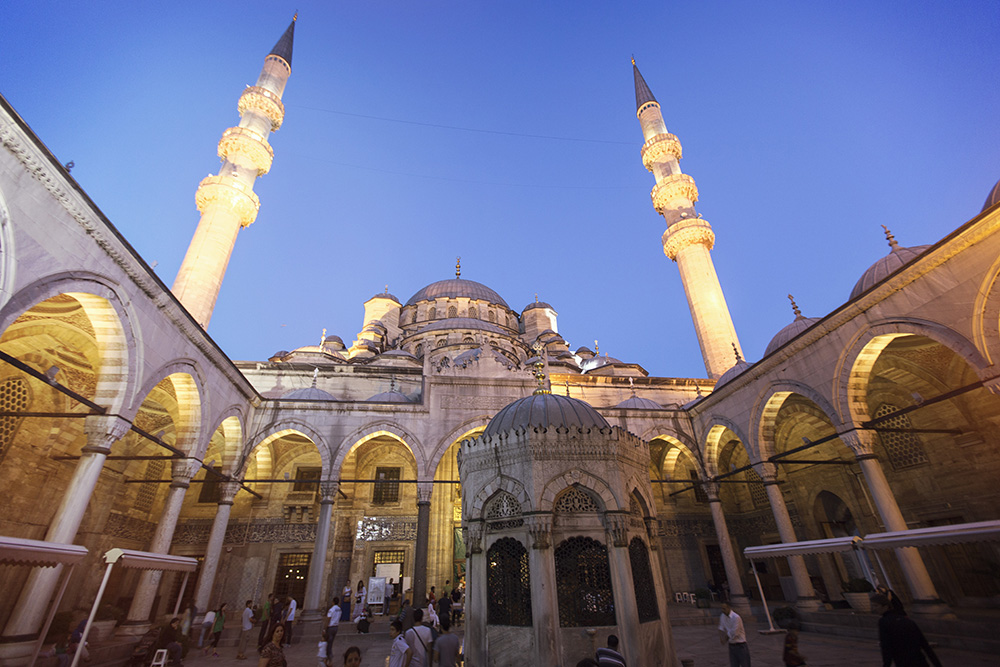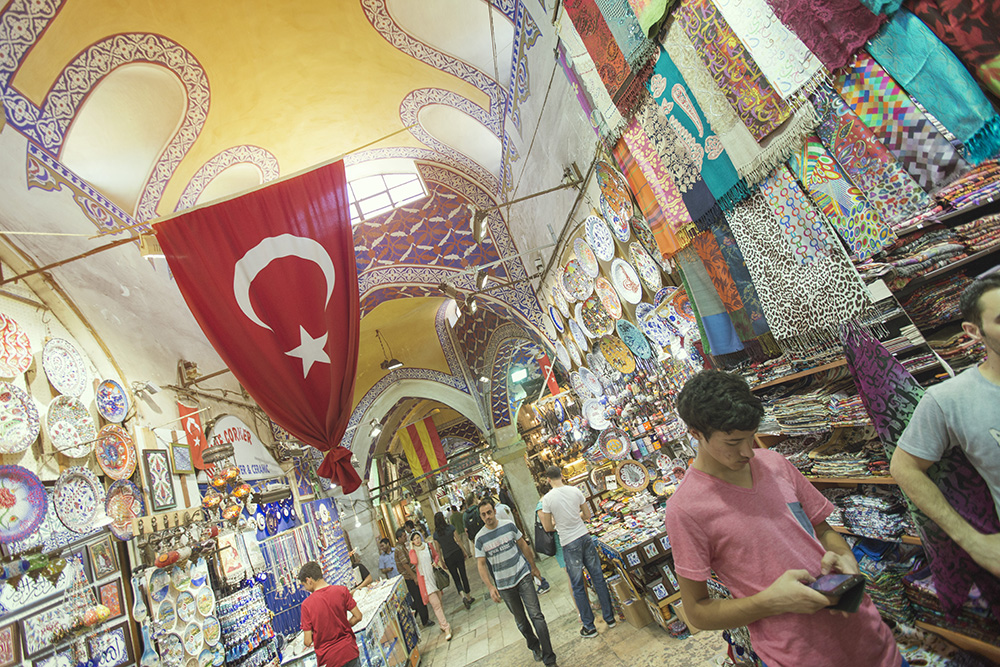Earlier this year, Turkey made news for a referendum in which the country decided to transform itself, probably in 2019, from a presidential parliamentary system — like Ireland — to a presidential republic, like the U.S. Turkey’s president, Tayyip Erdogan, is an authoritarian, like an increasing number of leaders around the world. To say it’s distressing for the citizens of these countries is an understatement. And Turkey’s been consistently painted with a particularly dark brush recently, both by its leaders and the global media, convincing tourists to stay away in droves. But with tourism comes an exchange of ideas, at least if you’re chatty, as tourists should be (it’s way more fun that way). So before you decide whether to go or not (spoiler: you should go), be aware, there’s a precedent for what's going on in Turkey now.

A mosque in historic Istanbul.
For about as long as there’s been a Europe, transcontinental Turkey has been its opposite. Though the late Roman empire actually moved its headquarters to what was then called Constantinople, on May 29, 1453, there was a split. That’s the day a 21-year-old named Mehmed led his Ottoman army into the city that from then on would be called Istanbul. Afterwards, the staunch canonical law of Europe often contrasted sharply with the combination of religious sharia law and secular Kanun law of the Ottoman empire. In the realm of religious and women’s rights, Turkey under a combination of these two laws was decidedly more of what today we would consider an open society than Europe. And Europe didn’t like it then, as they don’t now. In the past, they spoke of sultans as incomprehensible exotics, cruel autocratic monsters utterly unlike their own leaders. Things haven’t changed much.
Visiting Istanbul for the first time is like learning about Cahokia, the massive Indigenous city across the river from modern-day St. Louis, Mo.: it’s a place where things were happening long before you thought possible. But unlike Cahokia, Istanbul’s still going. It’s the longest continuous centre of civilization in the modern world, picked as the new Roman capital by Constantine in AD 330, and not relieved of its imperial mantle until 1923. I’ll do the math for you: That’s 1,593 years. Compare standard calculations for Rome (839 years), Addis Ababa (837), Athens (654), Copenhagen (600), Angkor (542), London (414), or even Babylon’s 868 (and it’s tough to visit Babylon these days), and it becomes apparent that no place on Earth spent as much time being where everything happened.
Walk the streets of the modern city — and it is a very modern city — and you’ll see every month of that history etched on the walls, carved into the earth, and stuffed into mussels.

A plate of midye dolma. Photo courtesy of ximena.
There are museums and masjids and churches everywhere, and the icons at the Hagia Sophia, the ceilings of the Blue Mosque, the mosaics of the Chora Church, and Abraham’s saucepan in the Topkapi palace (who knew he was the cook in the family?) are not to be missed.
But man, that food.
Start with the midye dolma, mussels stuffed with herbed rice. You can get them in restaurants, but I’d suggest the street, preferably somewhere close to one of the city’s many seasides. It’s a textural experience as much as a flavoursome one — the rice mitigates the gooeyness some find distasteful in shellfish. But the spices and herbs in that rice, things like cinnamon and red pepper flakes, parsley, and pepper, as well as little nuggets like currants and pine nuts, make them surprising little taste bombs. I got a T-shirt last time I was there from a great little boutique hotel called Cloud 7 on busy Ebuzziya Street near the Ataköy Marina that says “The only media I trust is midya dolma.”
Speaking of bombs — and you can’t not speak of bombs when you speak of Istanbul, or Turkey at large these days — all I can do is urge a little perspective by providing a little context. Turkey has been suffering various forms of violence from both Kurds and ISIS, and I wouldn’t recommend travelling anywhere near the Syrian border, about 1,000km (621 mi) east of Istanbul.

A Turkish bazaar.
But in Istanbul itself, where tourist numbers have dropped so precipitously due to the reports of violence that 600 shops in the Grand Bazaar have gone out of business in the last year and summer cruise ship arrivals dropped to about 30 from 300, there were 80 percent fewer deaths due to terrorism in the past year than there were victims of gun violence in Chicago, which is one-fifth its size.
Istanbul is one of the world’s great cities. The brazier carts lining the streets of Ataköy serving coffee boiled three times outside of restaurants serving a thousand variations on one of the world’s best cuisines is reason enough to visit. But when you add the resurgence of hamam culture — with ancient bathhouses like Kilic Ali Pasha in Karaköy beautifully renovated and attracting young Turks for the first time in generations — the Ottoman-era banks turned into boutique hotels, the bejewelled dagger that inspired one of Peter Ustinov’s best films (just down the hall from Abraham’s saucepan, which definitely deserves a movie of its own), and the life-size memorial statue of Tombili the reclining cat, you’ve got a city you really need to see — pretty much right now.
Getting there
Want to see (and taste) all Turkey has to offer? G Adventures can get you here. We offer a number of trips to Turkey comprising activities that cater to a number of travelling styles. We're excited to show you more of this big, beautiful world — check out our small group tours to Turkey here.























